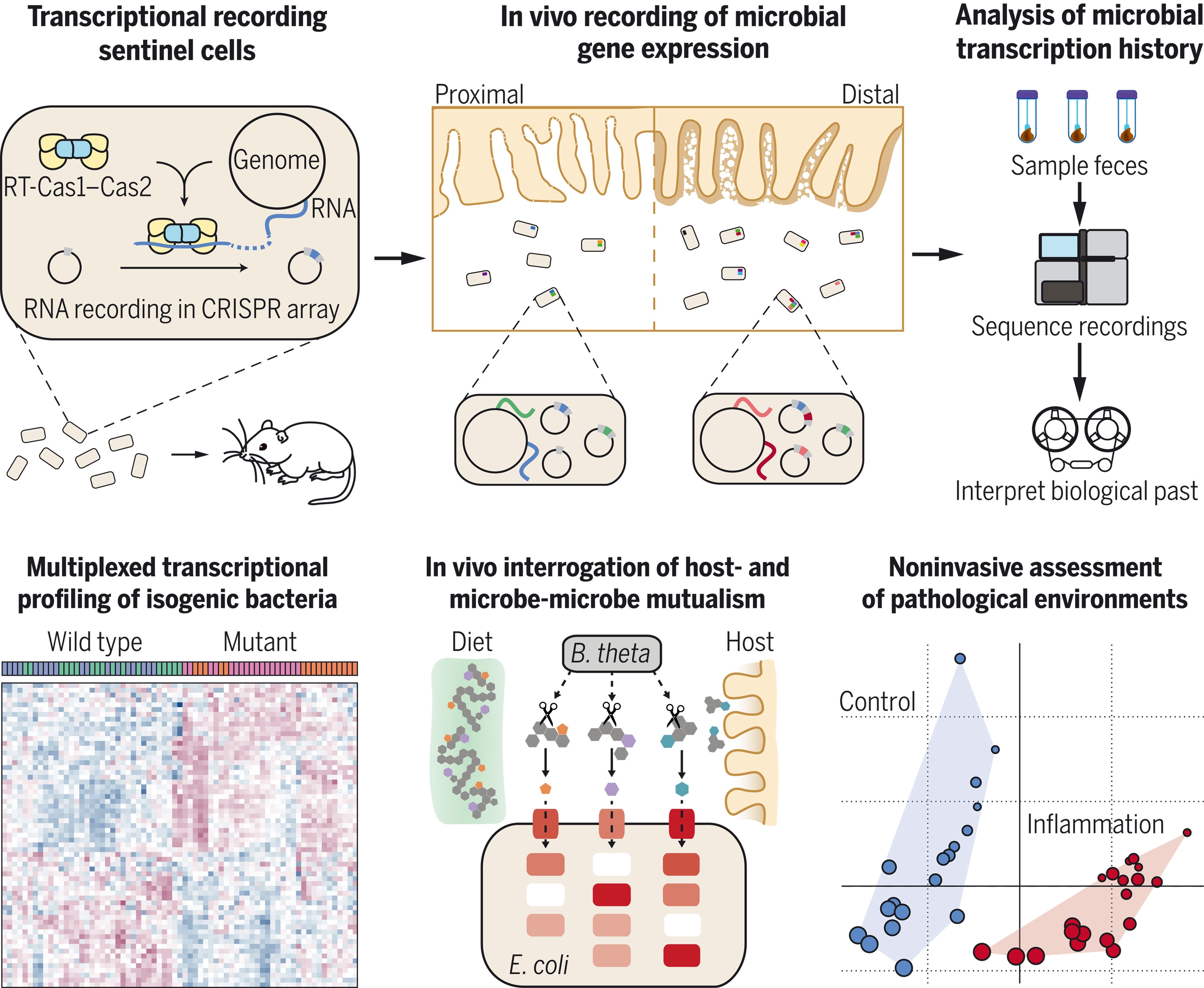Recently, Swiss scientists used genetically modified bacteria as data recorders to obtain the gene activity information of mouse intestinal microbiota under different diets and disease backgrounds without interfering with normal physiology. This study will promote the development of non-invasive intestinal disease diagnosis, and show that transcriptional recording has the potential of biomedical research and future biomedical diagnostic applications. The results were published in the journal Science.

Noninvasive measurement of bacterial gene expression patterns throughout the gut is important for understanding the physiology and pathophysiology of the microbiota in vivo. But so far, there is no way to understand the dynamic information of microbiota in vivo without interfering with normal physiology.
Researchers at the Federal Institute of technology in Zurich, Switzerland, modified the bacteria to act as a data recorder and record information on gene activity, and successfully tested them on mice. This is an important step in the future use of "sensor bacteria" in medicine, such as diagnosing malnutrition or understanding which diet is suitable for patients.
Randall Pratt, a professor of bioengineering at the Federal Institute of technology in Zurich, led the development of the so-called "sensor bacteria". He improved the record SEQ technology he developed a few years ago and introduced a CRISPR array of beneficial Clostridium bacteria into the strains of intestinal bacteria E. coli. Transcriptional recording by obtaining CRISPR spacer from RNA enables engineered bacteria to continuously record the history of gene expression in bacterial populations.
Researchers at the University of Bern, led by Professor Andrew McPherson, experimented with intestinal bacteria modified in this way in mice in the laboratory. The team collected fecal samples from experimental animals, isolated bacterial DNA from them, and analyzed them using high-throughput DNA sequencing. Using bioinformatics, researchers can reconstruct the genetic information of messenger RNA fragments from a large amount of data. Therefore, scientists can non invasively determine which messenger RNA molecules are produced by intestinal bacteria during their stay in the body, so as to determine which genes are active.
By applying "sensor bacteria" to mice with intestinal inflammation and healthy mice respectively, researchers were able to identify the inflammatory response in the intestine and determine the specific messenger RNA spectrum of intestinal bacteria switching to inflammatory mode. In experiments with mice fed different foods, the researchers also showed how bacteria adapt their metabolism to their respective nutritional supplies. This study provides an additional perspective on how diet, inflammation and microbial interactions in vivo shape the health of mammalian hosts.